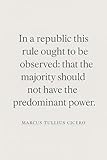Have you ever wondered why we think the way we do? Why do we value democracy? Why do we believe in individual rights? Many of our core beliefs stem from major philosophical concepts that have shaped modern thought. This journey through intellectual history will explore some of the most influential ideas that have transformed our understanding of the world and ourselves. From the Enlightenment to Existentialism, we’ll unpack complex theories and examine their lasting impact on our lives.
The Enlightenment and the Rise of Reason
The Enlightenment, spanning the 17th and 18th centuries, was a period of intellectual ferment that emphasized reason and individualism over tradition. Thinkers like John Locke championed natural rights, arguing that individuals are born with inherent freedoms, including the right to life, liberty, and property. This concept heavily influenced the American and French Revolutions and continues to inform our understanding of human rights today.
The Social Contract
Jean-Jacques Rousseau, another Enlightenment giant, introduced the concept of the social contract, proposing that government legitimacy derives from the consent of the governed. This idea challenged the divine right of kings and paved the way for democratic ideals. Imagine a society where the rules are decided collectively, not imposed by a single ruler. That’s the power of the social contract.
The Impact of Kant
Immanuel Kant’s philosophy revolutionized metaphysics and ethics. His concept of transcendental idealism suggests that our experience of reality is shaped by the structure of our minds. In ethics, Kant’s categorical imperative emphasizes the importance of universal moral principles. He argued that actions should be based on duty and respect for others, not on personal gain or consequences. “Act only according to that maxim whereby you can, at the same time, will that it should become a universal law,” Kant declared. This principle encourages us to consider the broader implications of our actions before we act.
The Birth of Romanticism
Romanticism, a reaction against the Enlightenment’s emphasis on reason, celebrated emotion, imagination, and the individual. Thinkers like William Wordsworth and Samuel Taylor Coleridge found inspiration in nature and explored the depths of human experience. This movement highlighted the importance of subjective experience and the power of art to express complex emotions.
 Romanticism and Nature
Romanticism and Nature
The 19th Century: Marx and Darwin
The 19th century witnessed the rise of two influential figures who profoundly impacted our understanding of society and the natural world: Karl Marx and Charles Darwin.
Marxism and the Critique of Capitalism
Karl Marx’s critique of capitalism exposed the inherent inequalities within the economic system. His theories on class struggle and historical materialism shaped socialist and communist movements around the world. Marx argued that history is driven by economic forces and that capitalism inevitably leads to exploitation.
Darwin and the Theory of Evolution
Charles Darwin’s theory of evolution by natural selection revolutionized biology and challenged traditional views about the origin of species. His work had far-reaching implications, influencing not only science but also philosophy and social thought.
Existentialism: Finding Meaning in a Meaningless World
Existentialism, a 20th-century philosophical movement, explored themes of individual freedom, responsibility, and the search for meaning in a world seemingly devoid of inherent purpose. Thinkers like Jean-Paul Sartre and Albert Camus emphasized the importance of individual choice and the creation of one’s own values. “Man is condemned to be free,” Sartre famously wrote, highlighting the burden and the opportunity of individual existence.
The Legacy of These Ideas
These major philosophical concepts, from the Enlightenment’s emphasis on reason to Existentialism’s exploration of individual freedom, have fundamentally shaped modern thought. They continue to influence our political systems, our moral values, and our understanding of the world and ourselves. Understanding these ideas offers us a deeper understanding of our own beliefs and the intellectual currents that have shaped our present.
Conclusion
We’ve journeyed through a vast landscape of ideas, from the Enlightenment’s focus on reason to Existentialism’s grappling with meaning in a meaningless world. These major philosophical concepts have not just influenced modern thought; they have shaped our societies, our values, and our very understanding of what it means to be human. By understanding the history of these ideas, we gain a clearer perspective on our own beliefs and the intellectual forces that continue to shape our world.
Remember, philosophy is not just an academic pursuit; it’s a way of engaging with the fundamental questions about existence, knowledge, and values. What resonated with you most on this journey? Share your thoughts in the comments below and let’s continue the conversation. Explore the related resources on our site to delve deeper into these fascinating concepts.
- Weitz, Morris (Author)
- English (Publication Language)
- Washburn, Phil (Author)
- English (Publication Language)
- Plato (Author)
- English (Publication Language)
- Hardcover Book
- Cathcart, Thomas (Author)
- Reflective themes on power dynamics and governance concepts.
- Minimalist design with elegant serif typography on a muted grey background.
- Pitkin, Hanna F. F. (Author)
- English (Publication Language)
- Akiba, Ken (Author)
- English (Publication Language)
- Used Book in Good Condition
- Jim Rohn (Author)
- Used Book in Good Condition
- Peacocke, Christopher (Author)
- Amazon Kindle Edition
- Heidegger, Martin (Author)










